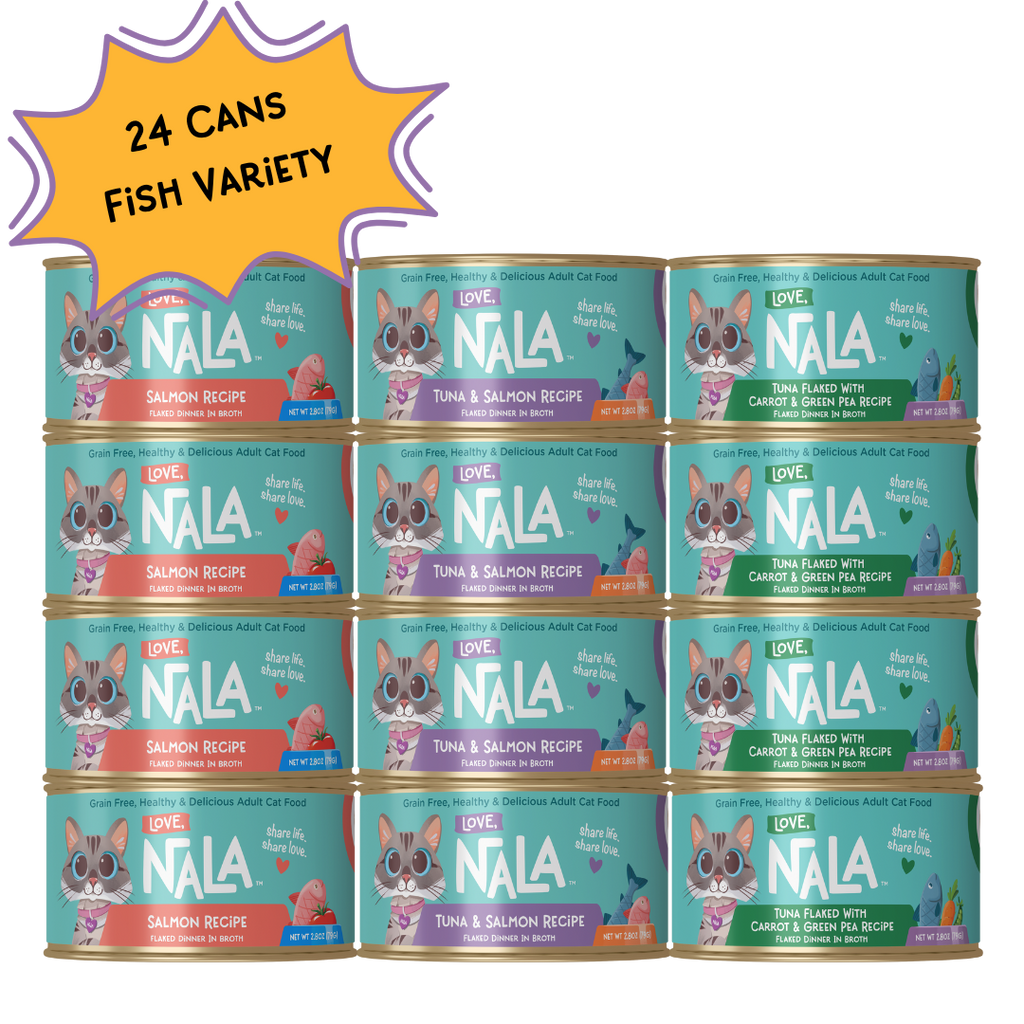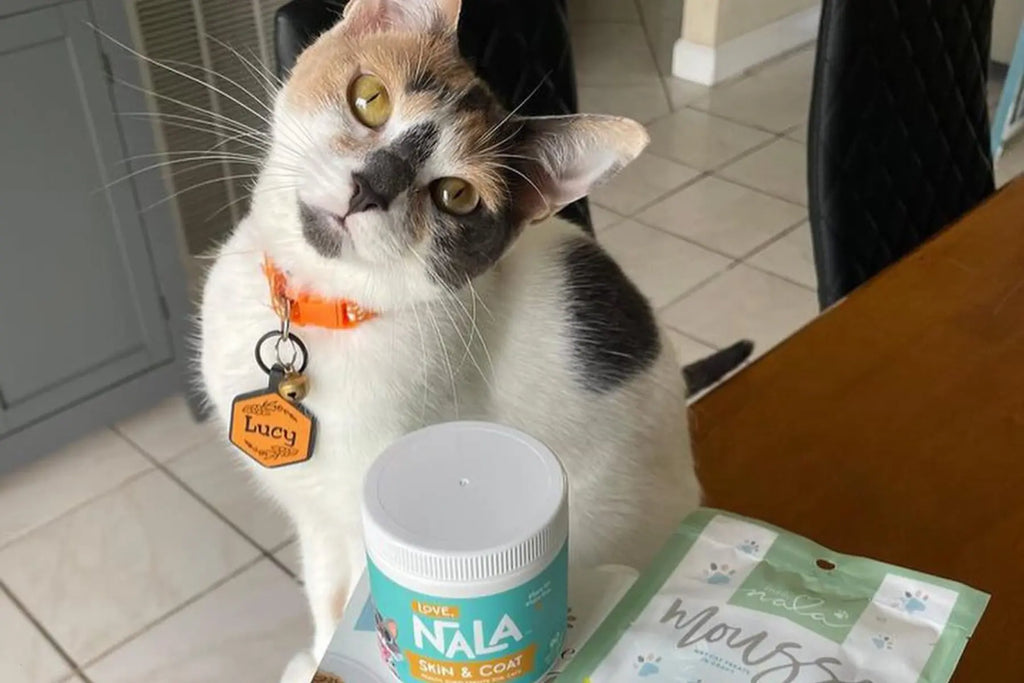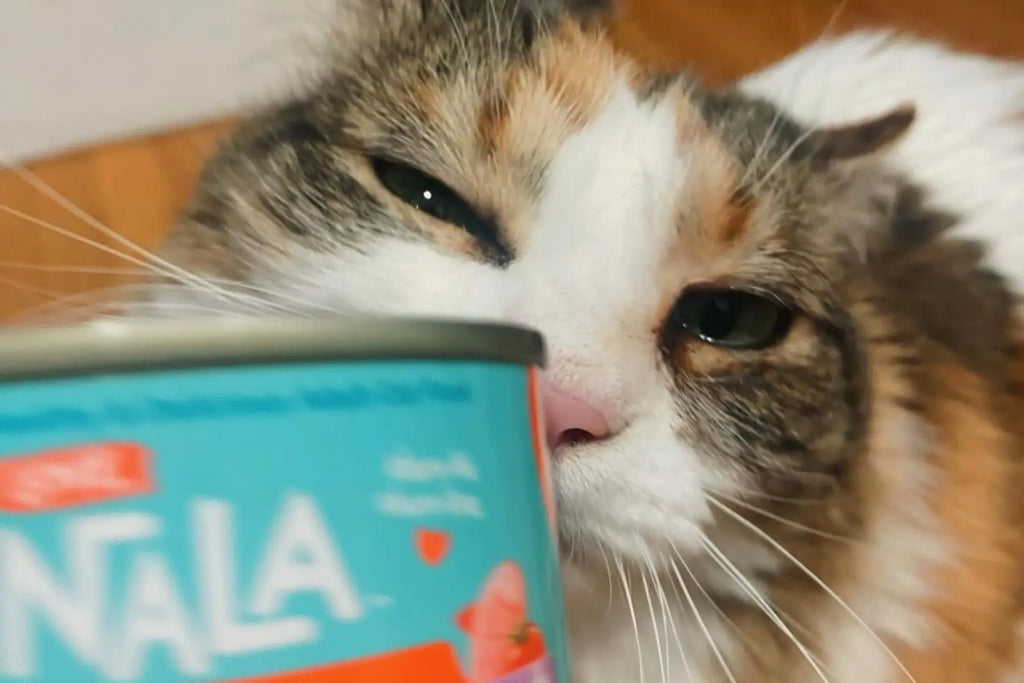Tuna broth, a liquid concoction derived from cooking tuna fish, is increasingly recognized for its potential health benefits in feline diets. Unlike the standard canned tuna, tuna broth is usually made by simmering tuna in water, sometimes with added vegetables or herbs to enhance the flavor. This process extracts nutrients from the fish, resulting in a broth rich in flavor and nutrients. It's a holistic, natural addition to cat food that appeals to feline taste buds while offering a range of health benefits. Tuna broth can be homemade or purchased, but it's essential to ensure it's free from harmful additives like onions or garlic, which are toxic to cats.

Nutritional Composition of Tuna Broth
This broth emerges as an integral component of a hydrating cat diet, essential for felines that typically exhibit low thirst drive and hence, are at risk of dehydration. The moisture content in tuna broth not only aids in hydration but also serves as a vehicle for delivering a spectrum of essential nutrients pivotal for a cat's health and vitality. The protein content in tuna broth stands out for its role in muscle maintenance and repair, a critical aspect of a cat’s physical health. Proteins, along with a modest amount of fats found in the broth, supply the necessary energy for daily activities, supporting the carnivorous dietary requirements of cats with minimal carbohydrate content. This aligns perfectly with their natural predatory instincts and dietary needs, making tuna broth a superb dietary supplement, especially beneficial for those requiring additional nutrition due to health challenges or the natural aging process.
One of the hallmark features of tuna broth is its rich content of omega-3 in cat food, the quintessential elements in a cat's diet that bolster overall health. Beyond aesthetics, omega-3s are instrumental in mitigating inflammation, offering relief to cats suffering from conditions such as arthritis. Their role extends to enhancing brain health and cognitive function, making them indispensable, particularly for aging felines.
Taurine, an essential amino acid present in tuna broth, is another cornerstone of feline wellness. Cats require a dietary source of taurine for crucial bodily functions, including optimal heart health, vision clarity, and reproductive health. Unlike humans, cats cannot synthesize sufficient amounts of taurine, making it imperative to include taurine-rich foods like tuna broth in their diet. This prevents the onset of severe health issues, such as dilated cardiomyopathy and reproductive challenges, ensuring cats lead a healthy and thriving life. Moreover, tuna broth acts as an excellent digestive aid for cats, facilitating smooth digestive processes and aiding in the prevention of gastrointestinal issues. Its hydrating properties and nutrient density support efficient digestion and nutrient absorption, contributing to a healthy gut microbiome.
Tuna broth is an often-overlooked but incredibly beneficial addition to a cat's diet, serving not only as a tasty treat but also as a source of vital nutrients. Beyond its appealing flavor and hydration benefits, tuna broth delivers essential vitamins and minerals that support various bodily functions and overall health in cats. Here's a closer look at what tuna broth offers:
- B Vitamins: These vitamins play a crucial role in the body's energy metabolism, helping to convert food into energy that cats can use for play, exploration, and daily activities. B vitamins are also vital for maintaining the health of the nervous system, ensuring proper communication between the brain and the body. This group of vitamins supports the formation of red blood cells, which carry oxygen throughout the body, aiding in the prevention of anemia and supporting overall vitality.
- Potassium: An essential mineral that is crucial for proper heart function, potassium helps regulate heartbeat and ensures smooth muscle contractions throughout the body. It's also vital for maintaining a healthy balance of fluids in a cat's cells and plays a key role in nerve function. Adequate potassium levels can help prevent muscle weakness, reduce the risk of stroke, and ensure that your cat remains agile and strong.
- Magnesium: This mineral works closely with potassium to support muscle and nerve function, making it essential for every physical movement your cat makes. Magnesium also plays a role in regulating blood sugar levels and blood pressure, contributing to heart health and preventing heart disease. Additionally, it's involved in protein synthesis and energy production, making it a key component in your cat's diet for maintaining their overall health and energy levels.
- Calcium & Phosphorus: Both calcium and phosphorus are critical for the development and maintenance of strong bones and teeth in cats. Calcium is not only vital for bone health but also for blood clotting and maintaining a normal heartbeat. Phosphorus, working in tandem with calcium, helps in the formation of bones and teeth and is involved in the body's energy metabolism. Together, these minerals ensure your cat's skeletal system is strong, supporting their physical activity and overall well-being.
Ensuring your cat receives a balanced diet that meets all their nutritional needs can sometimes be challenging. Tuna broth, with its rich content of essential vitamins and minerals, presents a simple yet effective solution to complement their regular meals. It's a tasty treat that not only satisfies their taste buds but also contributes to their health and vitality, making it a worthwhile addition to any cat's dietary regimen.

Health Benefits of Tuna Broth for Cats
Hydration is a cornerstone of feline health, and tuna broth is a superb way to ensure cats get enough fluids. Cats have a low thirst drive, which often leads to inadequate water intake. This can result in urinary tract diseases, kidney issues, and other health problems. By integrating tuna broth into their diet, cats receive a flavorful incentive to consume more fluids. This not only aids in preventing dehydration but also supports the overall function of vital organs. Regular intake of tuna broth can be particularly beneficial for cats prone to urinary and kidney problems, helping to maintain optimal hydration and organ health.
The inclusion of tuna broth in a cat's diet can have visible effects on their skin and coat. The natural oils and omega-3 fatty acids in tuna broth nourish the skin and promote a glossy, healthy coat. These nutrients help in reducing dry skin and flakiness and also aid in minimizing shedding. A well-moisturized skin and lustrous coat are not just signs of external beauty but are also indicators of good internal health.
For older cats or those with sensitive stomachs, tuna broth can be a gentle, digestible food supplement. It's easier on the stomach than heavy, solid foods, making it an ideal choice for cats with digestive issues. The broth's soothing nature can help settle upset stomachs and encourage food intake in older cats who might have lost some of their appetite. Moreover, the simple composition of tuna broth minimizes the risk of adverse reactions, making it a safe addition for cats with food sensitivities.
Considerations and Risks of Tuna Broth
One important consideration when feeding cats fish broth is the potential tuna broth mercury risk. Tuna, like many fish, can contain mercury, a heavy metal that can be harmful in large quantities. Chronic mercury exposure can lead to neurological and kidney problems in cats. It's crucial to source tuna broth made from varieties of tuna known for lower mercury levels and to feed it in moderation. Cat owners should also diversify their pets' diets with other types of fish or meat broths to minimize the risk of mercury exposure.
While tuna broth is beneficial, it should not replace a balanced diet. Excessive consumption can lead to nutritional imbalances, as it doesn't provide all the nutrients a cat needs. A diet overly reliant on tuna broth may lack certain vitamins, minerals, or amino acids essential for a cat's health. It's important to use tuna broth as a supplement to, not a substitute for, a complete and balanced cat food.
When it comes to enhancing your cat's diet with tuna broth, the quality of the product you choose plays a significant role in their health and well-being. To make an informed decision, consider the following detailed guidelines:
- No Harmful Additives: It's vital to select a tuna broth that is completely free of artificial flavors, colors, and preservatives. These additives can be detrimental to your cat's health, causing allergies, digestive issues, and even long-term health problems. High-quality tuna broth should be made from natural ingredients that provide nutritional benefits without exposing your cat to unnecessary chemicals and artificial substances.
- Formulation: Look for tuna broth that is specifically formulated for feline consumption. This ensures that the broth contains the right balance of nutrients tailored to meet a cat's dietary needs. Alternatively, making your tuna broth at home under the guidance of a veterinarian can be a great way to control the ingredients and avoid any unnecessary fillers or harmful substances. Homemade broths allow for customization based on your cat's specific health requirements and preferences.
- Ingredient Transparency: A trustworthy tuna broth brand will list all the ingredients on the packaging, providing complete transparency about what you're feeding your cat. This ingredient list should be straightforward, with recognizable items and no hidden or vague terms. Clear labeling reflects the manufacturer's confidence in their product and helps you make an informed choice about what you're including in your cat's diet.
- Avoid Low-Quality Products: Investing in a high-quality tuna broth is crucial. Low-quality products may contain harmful ingredients or lack the nutritional value your cat needs. High-quality broths might come at a higher price point, but they ensure that your cat reaps the health benefits of tuna broth without the risks associated with cheaper, inferior options. Prioritizing quality over cost can lead to better health outcomes for your cat in the long run.
The right tuna broth can be a valuable addition to your cat's diet, offering hydration and nutrients in a form that's appealing to them. Ensuring you choose a high-quality product is key to providing these benefits without any of the drawbacks of lower-quality alternatives. By following the guidelines above, you can make an informed choice that contributes positively to your cat's overall health and well-being.
Incorporating Tuna Broth into a Cat's Diet
While the idea of enriching your cat's diet with something as simple as tuna broth might seem straightforward, it's important to approach this addition with care and knowledge. Tuna broth can offer benefits such as added moisture and flavor, encouraging cats, especially those who are picky eaters or have a low thirst drive, to consume more fluids and enjoy their meals. However, without the right preparation and consideration, incorporating it into your cat’s diet could lead to dietary imbalances or health issues. Here's a detailed guide on how to do it properly:
- Consult with a Veterinarian: Before making any changes to your cat’s diet, it’s essential to consult with a veterinarian, particularly if your cat has existing health conditions. A professional can offer guidance tailored to your cat’s specific needs, ensuring that the addition of tuna broth supports their health rather than detracts from it. This step is crucial for identifying any potential risks and understanding how tuna broth might interact with your cat’s unique nutritional requirements.
- Introduce Gradually: When adding tuna broth to your cat's diet, start with a small amount mixed into their regular food. This slow introduction helps your cat adjust to the new flavor and can prevent digestive upset. It’s a methodical way to monitor your cat’s reaction to the broth, both in terms of taste preferences and physical health. The gradual introduction allows for a smoother dietary transition and helps you gauge whether your cat enjoys and benefits from the broth.
- Moderation is Key: It’s important to limit the amount of tuna broth in your cat's diet to just a few tablespoons a couple of times a week. Overconsumption can lead to imbalances, as tuna broth, while beneficial for hydration and taste, does not provide a complete nutritional profile. Moderation ensures that the broth acts as a supplement to the diet rather than a primary component, preventing any nutrient excesses or deficiencies.
- Balance with Regular Diet: Ensure that the primary diet of your cat remains comprehensive, providing all necessary nutrients. The addition of tuna broth should not replace any significant portion of their regular food. This balance is key to maintaining optimal health and ensuring your cat receives a well-rounded diet. A varied and balanced diet supports all aspects of your cat’s health, including skin, coat, energy levels, and immune system.
- Observe and Adjust: After introducing tuna broth, watch for any changes in your cat's health or behavior. Adjust the quantity or frequency of broth according to their reaction. Some cats might benefit from more frequent additions, while others may need less. Observation allows you to tailor the diet to your cat’s individual preferences and nutritional needs, ensuring they derive the maximum benefit from every meal.
After incorporating tuna broth into your cat's diet, observe their reaction closely. Some cats may show a positive affinity towards the broth, while others may be indifferent. By following these simple steps, you can safely add the nutritional benefits of tuna broth to your cat's diet, ensuring they remain healthy and hydrated.

The addition of tuna broth to your cat's diet offers various benefits that extend beyond mere hydration and flavor enhancement. It's a nutritional powerhouse that provides essential amino acids, vitamins, and minerals, supporting various aspects of feline health—from muscle maintenance and repair to heart health and digestive well-being. Notably, the presence of omega-3 fatty acids and taurine in tuna broth plays a critical role in inflammation reduction, cognitive function, and overall vitality, especially beneficial for aging cats or those with specific health challenges. However, it's imperative to approach the inclusion of tuna broth with mindfulness, ensuring it's of high quality, free from harmful additives, and integrated into the diet in moderation to avoid nutritional imbalances. Consulting with a veterinarian before making dietary changes is crucial to tailor the addition to your cat's unique nutritional needs and health status. By doing so, tuna broth can serve as a valuable supplement, enriching your cat’s diet and contributing significantly to their health and happiness. This thoughtful incorporation of tuna broth, alongside a balanced diet, can enhance your cat's quality of life, making it a worthy addition to their nutritional regimen.




















